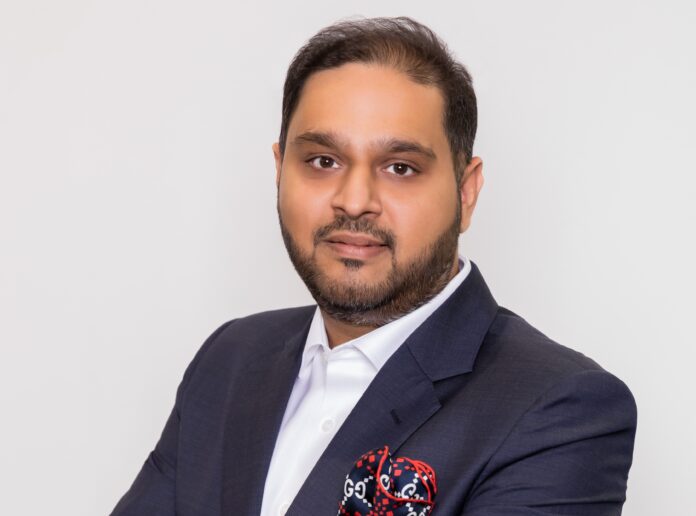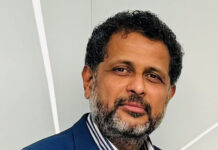What is behind the emerging choice or preference for the GCC, especially the UAE, as a location for managing wealth?
The GCC, in particular the UAE, has emerged as a prime location for wealth management services, due to several factors such as the UAE’s strategic location set at the crossroads of major international trade routes, and the steady economic growth they have experienced over the last 2 decades.
The UAE has developed a robust financial infrastructure, including world-class banking facilities, investment platforms, and regulatory frameworks conducive to wealth management. For instance, the DIFC has emerged as a leading hub, attracting top-tier financial institutions and wealth management firms. Firms offering sophisticated products and services, including private banking, asset management, estate planning and family office services.
One of the key attractions of the UAE is its favourable tax regime. The country imposes no personal income tax, no capital gains tax and no inheritance tax, making it highly attractive for affluent individuals seeking to preserve and grow their wealth.
The GCC region has seen a significant accumulation of wealth, driven by factors such as oil revenues, diversification efforts and strategic investments. According to a report by BCG approximately 27% of the GCC’s wealth in 2022 originated from UHNW Individuals, elucidating how HNWI are conducting a vital role in solidifying the GCC’s position economically, thus the emerging preference for wealth management especially in the UAE increasing HNWI demographic.
How are regional jurisdictions planning to build for, and adapting to accommodate the growth of wealth services?
GCC countries are taking proactive measures to accommodate the growth of wealth services. Placing focus on enhancing their regulatory frameworks to attract and regulate wealth management activities effectively.
There’s a collective effort to develop and strengthen financial infrastructure, including banking systems, capital markets and investment platforms. Thus, the increase in technology use, innovation and digitalisation to streamline processes, improve efficiency and enhance the client experience.
Governments are investing in education and training programs to build a skilled workforce capable of meeting the ever-growing demands of the wealth management industry in areas such as financial planning, investment management, and regulatory compliance.
GCC jurisdictions are working to improve market access and connectivity to attract international investors and expand the reach of their wealth management services. This includes initiatives such as signing bilateral agreements, participating in international financial forums, and developing partnerships with global financial institutions.
Moreover, these countries are also establishing specialised wealth management hubs and financial centres to concentrate expertise, infrastructure and services in one location. The DIFC is a prime example of this.
Which asset classes are taking the lead for investors in the region at this time?
In the GCC region, a few asset classes normally take the lead among investors. Real estate has traditionally been a favoured asset class in the GCC due to the region’s rapidly growing population, urbanisation and infrastructure development. Exemplified with Local investors investing in residential and commercial properties, including apartments, villas, offices and retail spaces.
Fixed income securities, including government and corporate bonds, are also quite popular among investors in the GCC. The Sukuk market has played a major part in the region where Islamic banking and finance takes centre stage.
Commodities, particularly gold and oil, continue to attract investors in the GCC region. Gold is often seen as a safe haven asset and a hedge against inflation. While oil investments are influenced by the region’s significant oil reserves and the global energy market dynamics.
Equities has been a growing asset class in this region given the attractiveness for income generation and capital preservation. Nonetheless it has seen a massive rise in interest due to far greater returns it has generated not only in global markets but also regionally.
There is growing interest in alternative investments such as private equity, venture capital, hedge funds and private debt among GCC investors. With the rise of digital transformation and innovation, investments in technology-related assets such as fintech, e-commerce and artificial intelligence are gaining momentum.
Aside from growth and wealth preservation, what do you see as the leading strategic planning priority for wealthy clients and families?
For HNWI clients and families, wealth preservation will always take precedence especially as a mechanism of safeguarding capital for which they have accumulated and grown, while also taking into account the effect of inflation over time.
Prospering wealth for their future generations is also crucial thought and necessity, as from a legacy planning perspective they would favour passing on their wealth to future generations, accounting for economic downturns that could arise.
Another major objective we see clients consider is regarding income-generation. Some wealthy families rely on their investment portfolios to generate a steady stream of income, especially during retirement. This income can come from dividends, interest, or rental income from real estate.
Wealthy families may have specific liquidity requirements, such as buying real estate, or making other significant purchases. Balancing long-term investments with sufficient liquidity is crucial.
Could ESG ever become the main driver of investment decisions for the region’s wealthy?
ESG investing has become a global trend to be highlighted as a necessity and framework, driven by the increasing awareness of environmental issues, social responsibility and corporate governance. Companies with strong ESG practices are thought to be better positioned to manage environmental and social risks, reducing potential financial and reputational risks.
Governments in the Middle East are increasingly emphasising sustainability and ESG principles as part of their economic and development agendas. Regulatory frameworks and initiatives are being introduced to promote ESG considerations in investment decisions, creating an environment that encourages responsible & sustainable investing.
Wealthy individuals in the Middle East, who are often associated with influential family businesses, may prioritise investments that enhance their reputation and brand image. Supporting ESG principles can contribute positively to a family’s legacy and public perception.
ESG criteria also aligns well with Islamic finance principles that emphasise ethical and responsible investment practices, making it a natural fit for HNWIs in the Middle East who may be more inclined to consider investments that align with their ethical values.
How might the inevitable presence of AI change the relationship between wealth managers and their clients?
The presence of AI is expected to enhance the capabilities of wealth managers, improve the client experience, and drive innovation in the wealth management industry. However, it’s essential for wealth managers to strike the right balance between human expertise and technological innovation to ensure that clients continue to receive the personalised attention and empathy that are hallmarks of a trusted advisory relationship.
Wealth managers can deliver more personalised investment advice and tailored solutions using AI-powered algorithms that analyse vast amounts of data to gain insights into clients’ financial goals, risk tolerance, and preferences.
By analysing market trends, economic indicators and news sentiment in real-time, AI can assist in identifying opportunities and risks, leading to more effective portfolio management. AI-driven automation can also streamline routine tasks such as portfolio rebalancing, trade execution and performance reporting, allowing wealth managers to focus more on strategic planning and client engagement.
AI-powered risk management tools can assess portfolio risks more accurately and proactively, enabling wealth managers to mitigate potential losses and preserve capital. By continuously monitoring market conditions and portfolio performance, AI can provide early warnings of emerging risks and recommend appropriate risk mitigation strategies.










